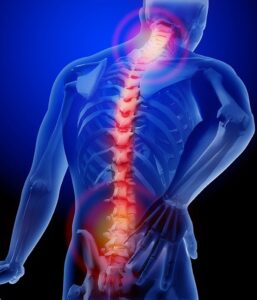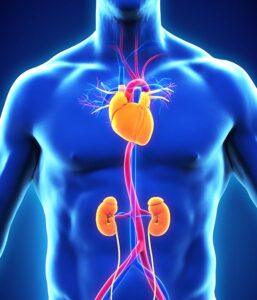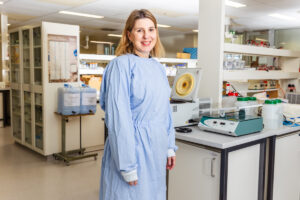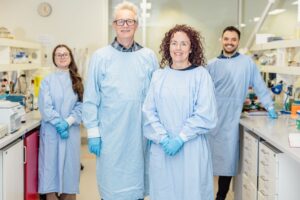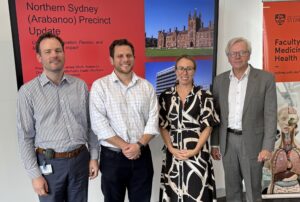The Cardiovascular Discovery Group focuses on identifying new ways to treat cardiovascular disease. The key aim of our research is to improve the survival and wellbeing of people with heart disease and those who are susceptible to developing the disease. We do this through a research program of translational and clinical research.
Our team works across the leading academic hospital, Royal North Shore Hospital and the Kolling Institute. This means we are in a good position to transfer our research outcomes to clinical practice. It also means our clinical experience directly informs our research programs. Our current research involves translational basic science, clinical trials and patient studies.
It is focusing on the following areas:
- Redox signaling
- Inflammation therapies
- Biomarker discovery
- Vascular dysfunction
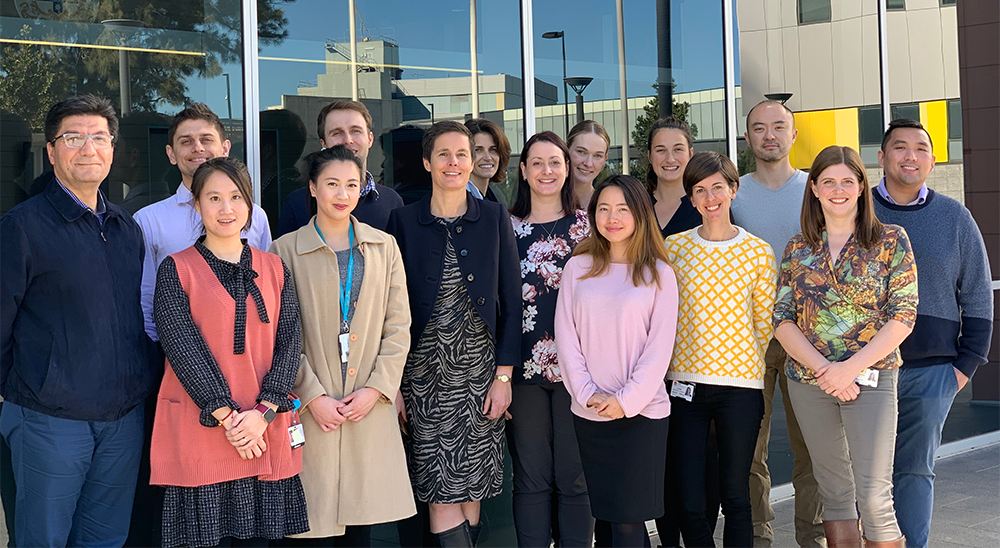

Lead

People

Projects

Publications

Professor Gemma Figtree
Cardiovascular Discovery
Medicine, Northern Clinical School
Member of the Charles Perkins Centre
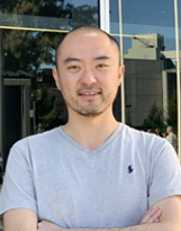
Dr Owen Tang
Research Fellow
Cardiovascular Discovery
Michael Gray
PhD Student
Vicki Snelson
Operations Manager
Dr Zara Ali
Research Program Manager
Jessica Hu – Clinical Research Assistant
Tung Nguyen – Clinical Trial Coordinator
Suzanne Avis
PhD Student
Soloman Saleh
PhD Student
Cheryl Macadam – Clinical Trials Nurse
Daniel Cheng – PhD student
Cameron Evans
PhD Student
Joshua Vescovi
Research Associate / Biostatistician
Patricia Schwarzkopf
Research Assistant
Madhuvanthi Chandrakanthan
Postdoctoral Research Associate
Tena Carolina
Research Admin Officer
The role of redox signalling in cardiovascular disease
Oxidative stress is a major driver of cellular dysfunction leading to cardiovascular disease.
Our group strives to understand the way reactive oxygen species affect disease in the heart and blood vessels, by investigating molecular mechanisms and testing different therapies to prevent it.
Current Projects:
- Investigating the post transcriptional regulation of FXYD1 by microRNAs
- Investigating the role of FXYD1 in stable and unstable atherosclerosis
- Identifying new therapeutic targets in cardiac remodeling and fibrosis
- Investigating the protective role of FXYD1 in diabetic cardiac fibrosis
New targeted anti-inflammatory strategies in cardiovascular disease
Atherosclerosis develops when fatty deposits on arterial walls cause clogging, potentially causing conditions such as coronary artery disease or angina.
Inflammation plays a role in atherosclerosis development and progression. However, our current understanding of the mechanisms involved is very limited.
Our group focus on investigating the specific factors driving inflammation that lead to heart disease. This insight has the potential to identify markers to better predict the risk of patients and may also aid the development of novel therapeutic strategies.
Current projects:
- Investigating novel P2X7R antagonists in stable and unstable atherosclerosis
- Screening novel P2X7R antagonists for anti-inflammatory effects
- What is the therapeutic efficacy of the novel P2X7 antagonist in attenuating diabetes associated -atherosclerosis and diabetic cardiomyopathy?
Discovery of novel and predictive biomarkers of cardiovascular disease
Despite common perception that cardiovascular disease is well understood and managed, it remains the leading killer of Australians. Major advances have been made in the identification and treatment of modifiable risk factors for cardiovascular disease in the community. However, at an individual case level, it is not uncommon for a patient to present with extensive atherosclerosis without adequate explanation.
Current atherosclerotic biomarkers: Until recently, clinicians were limited to clinical history of modifiable risk factors, family history, and lipid profile to try to predict risk of atherosclerotic events. While all these factors reflect statistical risk, they fail to take into account individual phenotypes mediating the “host response”. The advent of CT coronary angiography and calcium scoring is a major step forward in terms of identifying early disease. However, they are not considered suitable for mass community screening. The ideal tool that we are currently missing is a blood biomarker reflecting early phase atherosclerotic disease activity. Such a biomarker should integrate not only the risk of plaque development, but also the “host response” at the level of the arterial wall. This combination of risk and host response should improve the precision of preventative therapies relevant to the individual.
Current Projects:
BioHEART is a platform for discovery of new mechanisms of both vulnerability, as well as resilience to atherosclerosis. A prospective study would involve patients undergoing CT coronary angiogram across the Sydney Health Partners network.

